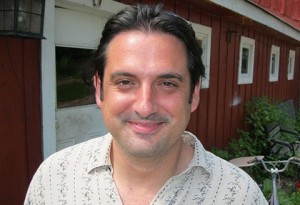
In 2010, Paul Ceglia of Wellsville, New York filed a lawsuit against Facebook founder Mark Zuckerberg, claiming that a 2003 contract entitled him to half of Zuckerberg’s interest in the company. Ceglia passed a polygraph “test” administered on 11 June 2010 by Michael Pliszka, a retired law enforcement officer and member of the American Polygraph Association, who stated in a court filing:
The questions asked during the polygraph examination were designed to determine whether Mr. Ceglia had fraudulently forged or doctored the Agreement. After conducting three polygraph charts utilizing a Zone Comparison Technique, and review of the examination utilizing accepted criteria for analysis, it is my opinion that the examination results are classified as “No Deception Indicated.” No Deception Indicated is indicative of an individual telling the truth.
Pliszka’s statement, which includes a copy of the alleged contract between Ceglia and Zuckerberg, may be downloaded here. In a separate court filing, Ceglia quipped, “I respectfully suggest that Mark Zuckerberg undergo the same polygraph examination I have in order to expose who is really telling the truth.”
But despite passing the polygraph, on Friday, 26 October 2012, Ceglia was arrested and charged by federal authorities with attempting to defraud Facebook:
In 2010, a New York entrepreneur made an explosive legal claim: An agreement that he had with Facebook’s founder, Mark Zuckerberg, entitled him to a major stake in the social-networking giant.
Mr. Zuckerberg staunchly denied the allegation, and his lawyers insisted that the entrepreneur, Paul Ceglia, was a scam artist.
On Friday, federal authorities sided with Mr. Zuckerberg, arresting Mr. Ceglia and charging him with a multibillion dollar scheme to defraud Facebook.
Prosecutors say that Mr. Ceglia, 39, of Wellsville, N.Y., filed a sham federal lawsuit claiming to have been promised a 50 percent share of Facebook in 2003, and then doctored, fabricated and destroyed evidence to support his allegations.
“Ceglia’s alleged conduct not only constitutes a massive fraud attempt, but also an attempted corruption of our legal system through the manufacture of false evidence,” said Preet Bharara, the United States attorney in Manhattan. “Dressing up a fraud as a lawsuit does not immunize you from prosecution.”
It certainly looks like Paul Ceglia beat the box. Which is not surprising. Polygraph “testing” has no scientific basis and is easily circumvented using simple countermeasures. Moreover, in situations such as this, a lawyer can shop his client to any number of polygraph operators under terms of attorney-client privilege, keeping any failed polygraphs secret while trumpeting any passed one as evidence of the client’s truthfulness to a gullible press and public.